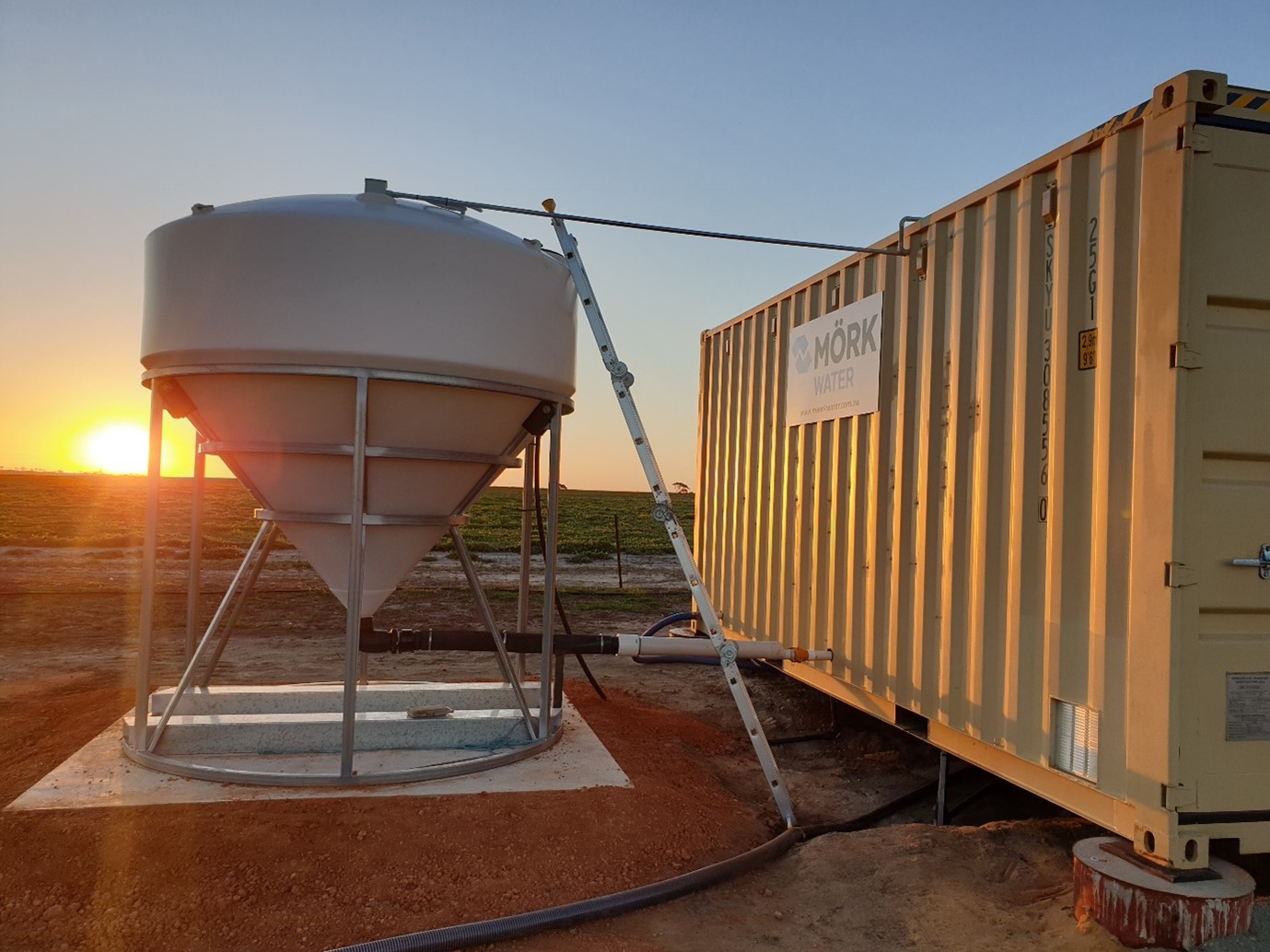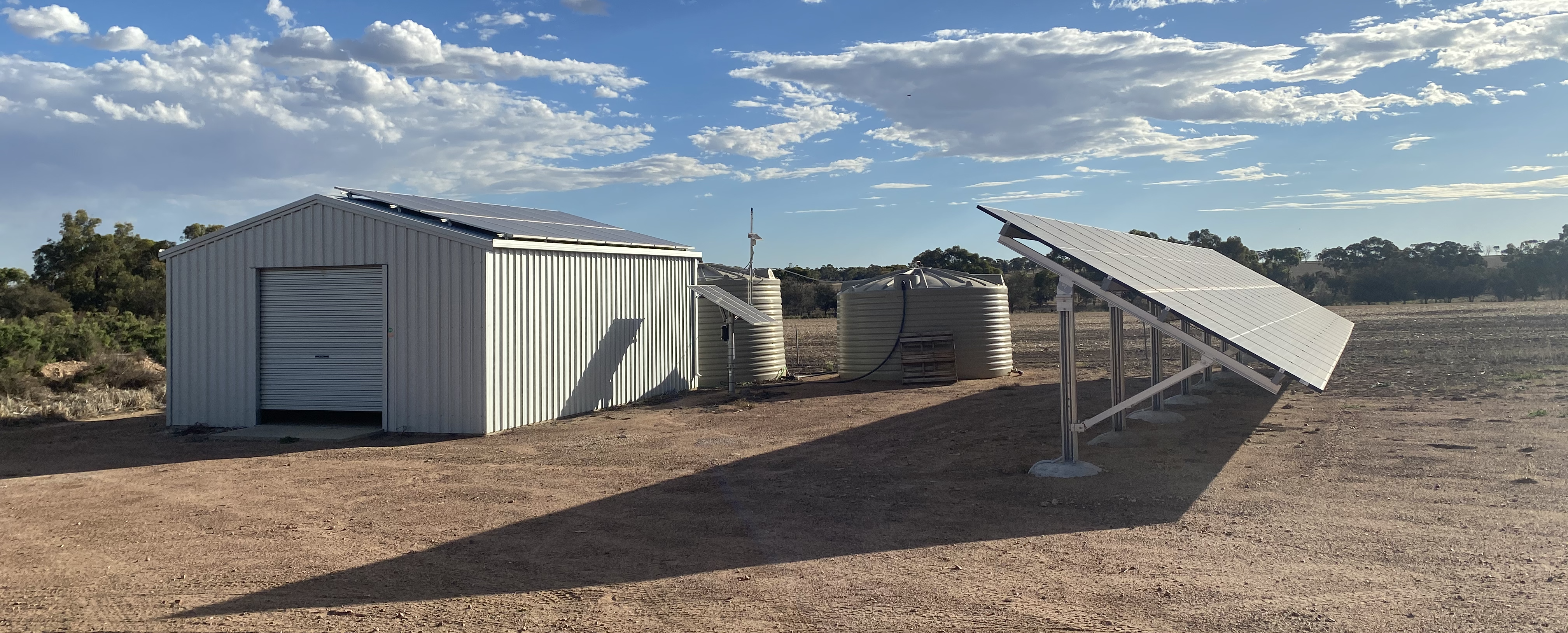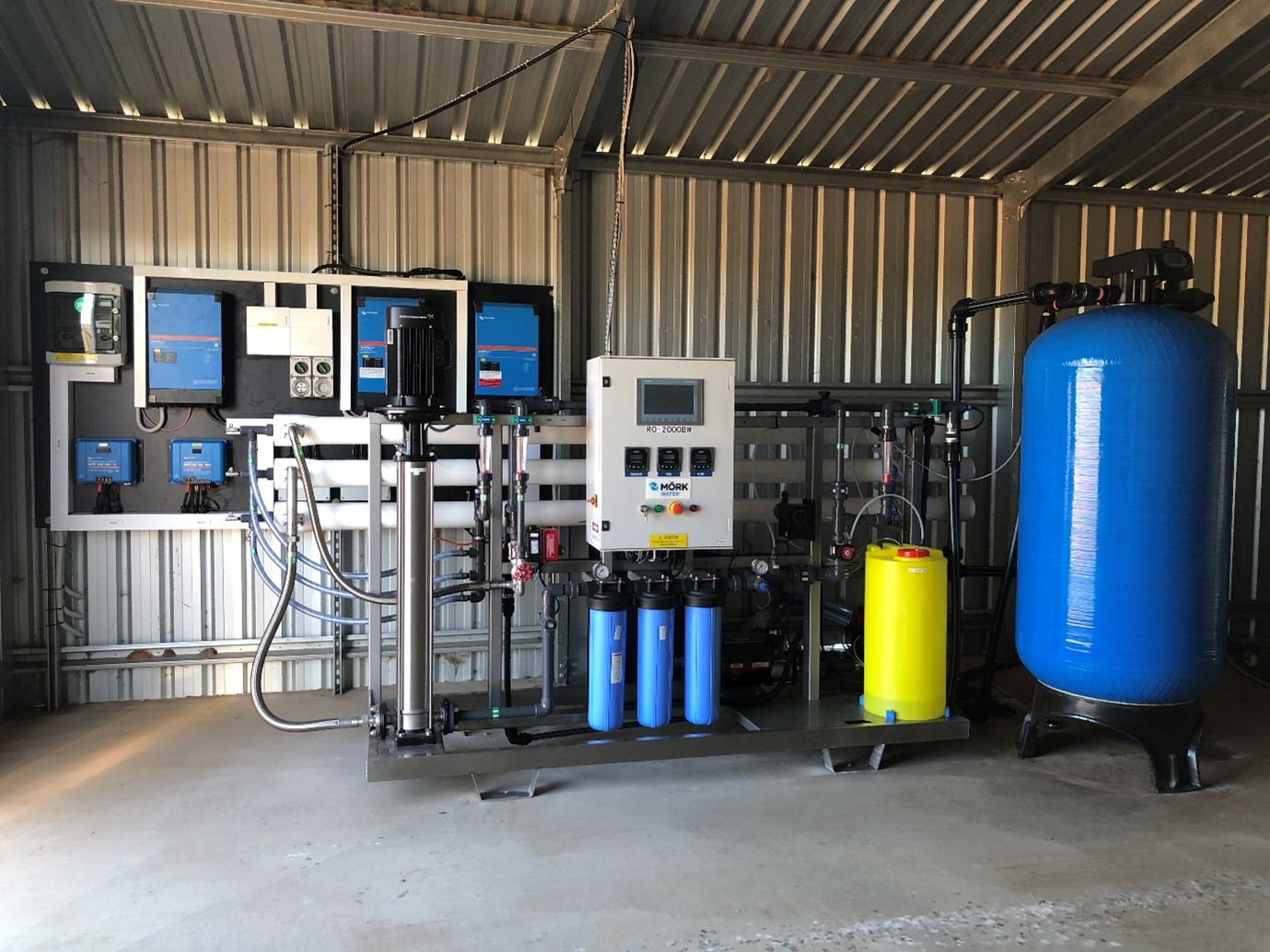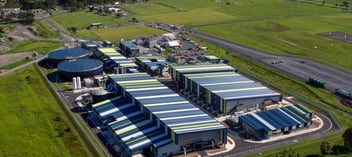How desalination ensures a sustainable, reliable water supply

A consistent water supply is the lifeblood of a farm whether it is broadacre, livestock or horticulture focussed.
Soaks and dams provide a valuable source of readily accessible water for farms, particularly during the summer months. However, water from a soak or dam may require further treatment before it can be used as it may contain biological, chemical or physical contaminants. E. Coli, nitrates and suspended clay particles are all commonly found in farm dams and soaks. Moerk Water are part of the WaterSmart Dams project (led by the Grower Group Alliance in partnership with DPIRD) which is developing water planning tools and improving grower knowledge about dam treatment systems.
Climate change is a challenge
Climate change is increasingly changing rainfall patterns resulting in prolonged drought conditions and more damaging storms that do not produce significant run off. Once surface water has been depleted onsite, many farmers are forced to either cart water in or drill for groundwater to carry them through dry periods. However, as Western Australia has some of the saltiest groundwater in the country many farmers are faced with groundwater sources too salty to use, forcing them to rely on water carting.
Desalination is key to sustainability
Desalination, the process of producing low salinity water from salty water, allows for salty bores to be turned into a valuable water source for farms. Moerk Water are also part of the WaterSmart Farms project, a DPIRD program that showcases how desalination systems can provide sustainable water for farms. By treating saline bores with desalination, farmers not only secure their water supply but can also tailor the amount of salt in the product water, essentially dialling in the salt concentration required for different applications. Although desalination systems do produce a waste stream, this waste can be dealt with by a variety of methods or even used as product water itself. Latest generation desalination systems can also produce very low volume waste streams.
Below are two previous project from Moerk Water on how desalination played a key part in water sustainability.
East Cape Village Water Supply
A community in Eastern Papua New Guinea has a dry season that lasts for three months, followed by unpredictable dry spells throughout the year. As a result, most wells dry out forcing the closure of schools and aid posts. Additionally, the open shallow wells in the community are contaminated with salt and microbiological material. In 2018, Moerk Water installed an automated solar powered membrane filtration unit which provides sufficient water for the 800 residents of the community. The unit is constructed from high quality, durable parts and is easy to use. Moerk Water undertook in-depth training of daily operators who have been operating the unit since installation. The community in eastern Papua New Guinea is a gateway to islands off the coast. The water treatment unit supplies not only the community itself but also the residents of the islands off the coast with a source of clean water.
Project Outcomes:
- A community in Eastern Papua New Guinea suffered from water scarcity causing the closure of schools and health centres.
- Moerk Water provided a treatment system which supplied sufficient clean water to supply the Health Centre, Maternal Clinic, Primary School, Secondary School and community
- With a clean water supply, schools stay open all year round even during droughts leading to an increase in school attendance
- Clinics also now stay open year round and people with disabilities now have access to clean water. This has led to a noticeable improvement in children’s health with maternal health also improving as nurses now have access to clean instruments
- The water treatment unit also offers source of clean water to residents who live on islands off the coast
Cranmore Farm Bore Water Treatment
Two common contaminants in groundwater in Western Australia are salt and dissolved iron. A sheep farmer north of Perth was running out of water during the summer months and only had brackish groundwater with a high level of dissolve iron as an alternative water supply. Moerk Water installed an easy to use, automated membrane filtration system with an iron removal pretreatment system to secure the water supply on the farm. Following the success of the first unit, Moerk Water installed a second membrane filtration unit on the farm with 4 times the capacity of the first. These units are constructed from quality materials, are built to Australian-German engineering standards and are both run on solar power meaning that they can be located anywhere on the farm and can produce water where it is needed most. Moerk Water keep in touch regularly with the client as part of its After care service program.
Project Outcomes:
- Treatment unit successfully removed iron and salt from bore water supply
- Secured water supply on sheep farm north of Perth
- After success of initial unit, farmer installed additional Moerk Water unit with a capacity four times the size of original unit
- Both units are powered by solar energy, allowing for a decentralised supply and minimal infrastructure

What's next?
The WaterSmart Farms project are also examining methods to reduce the energy use of these systems and investigating the effectiveness of different waste stream disposal systems.
Find out more about Moerk Water



